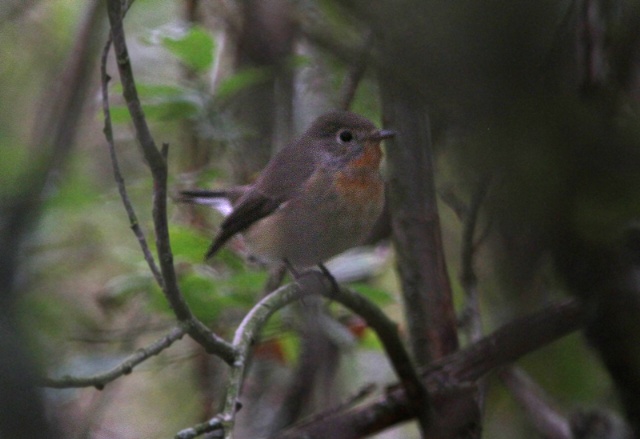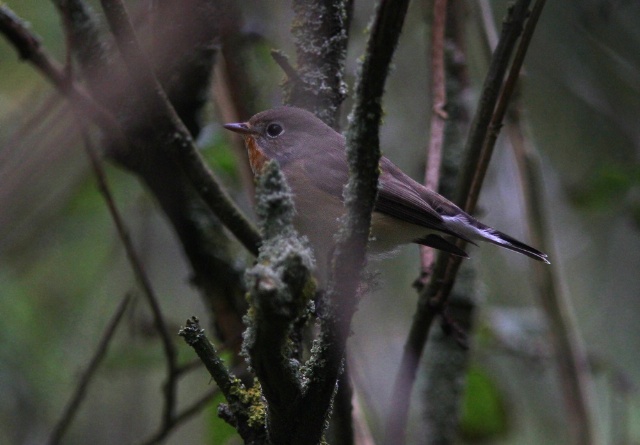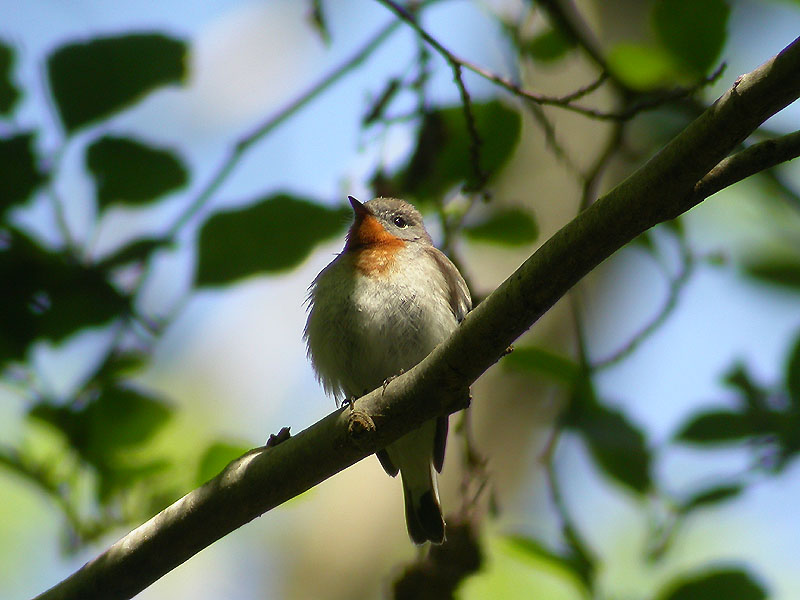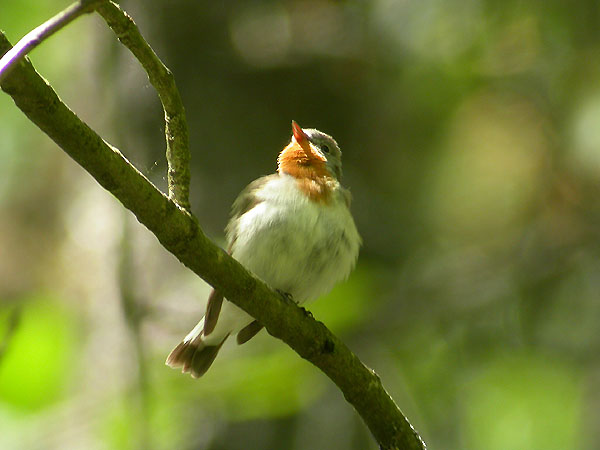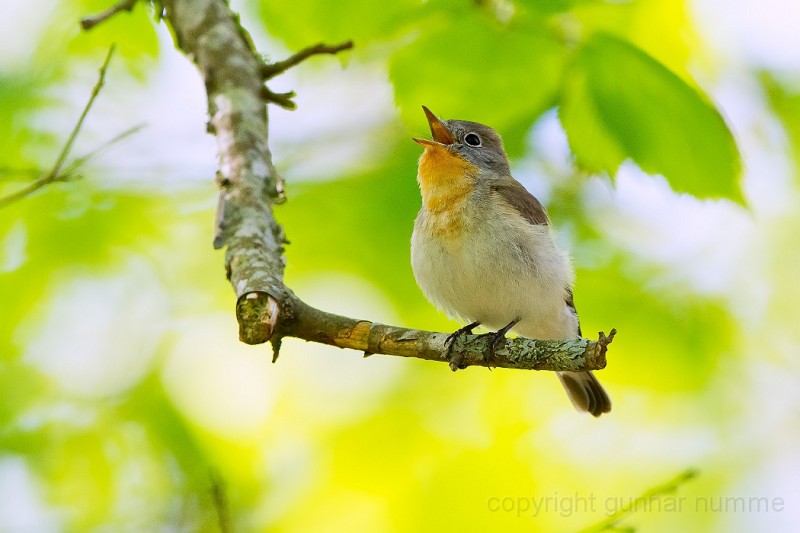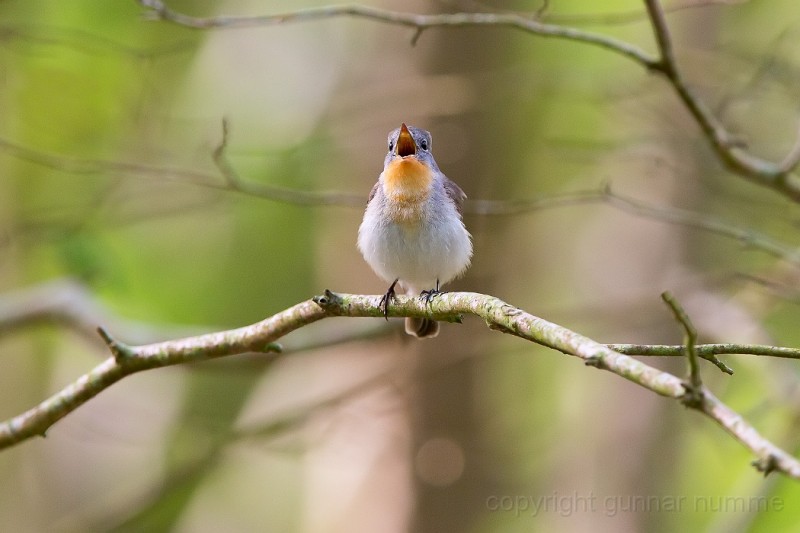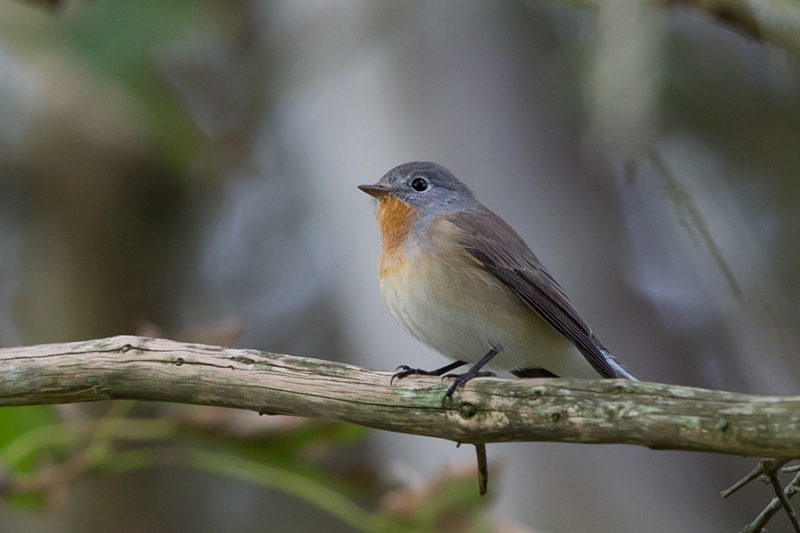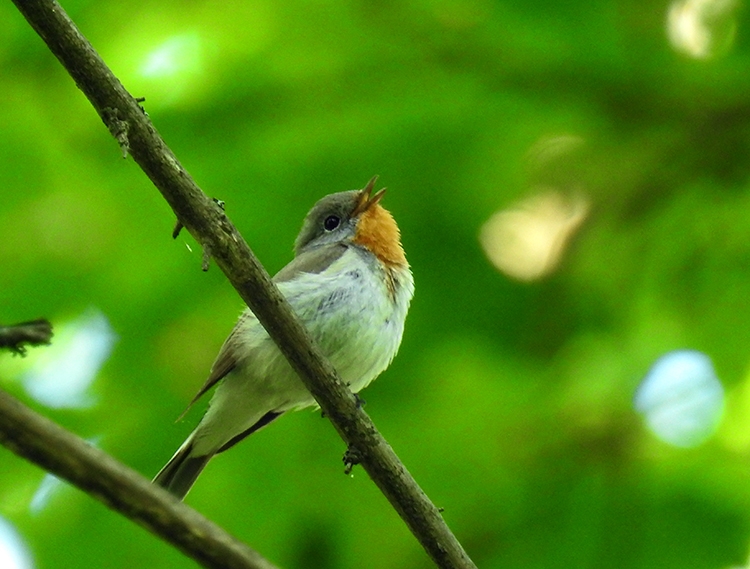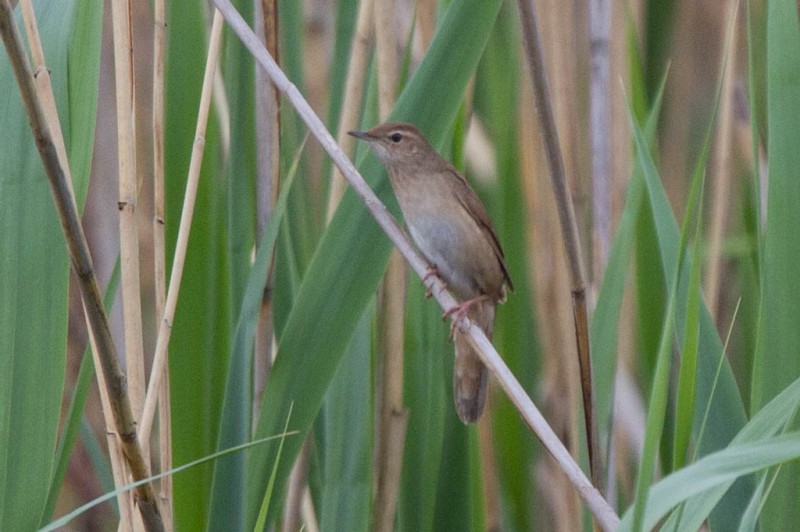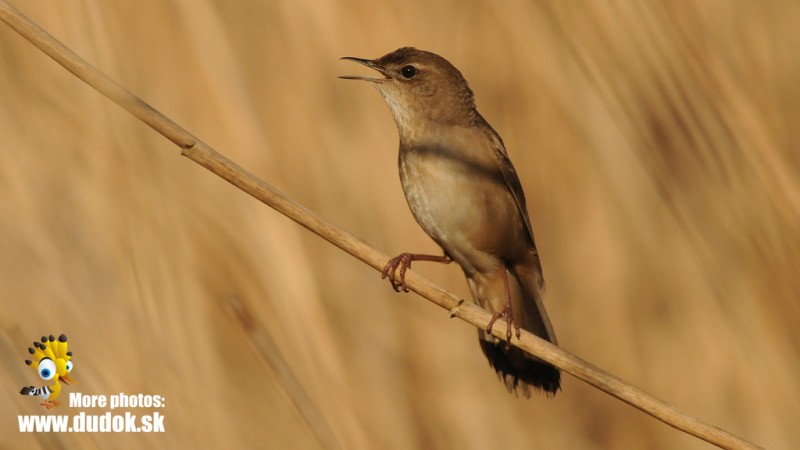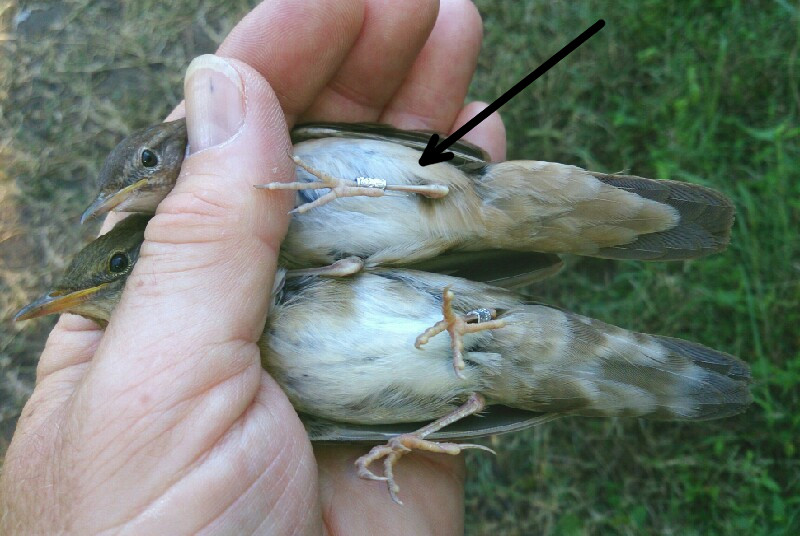Red-breasted Flycatcher (Ficedula parva)
Savi's Warbler (Locustella luscinioides)
A small and elegant flycatcher with deep chest, slender vent and fairly long tail. Head rounded and bill thin. Best field mark is the dark tail with white edges at the base (Wheatear-like) shown in all plumages. Often flirts tail, showing the diagnostic markings. Male recognized by Robin-like throat-patch and slate grey head. The red is restricted to the upper throat, and does not extend to the cheeks like in Robin. Very acrobatic flight when hunting. More pronounced flicking of tail than in other flycatchers, with tail sometimes even pointing forward over back, before being let down slowly.
Sound:Alarm call a sharp and dry "trrrrrt". Song comprised of three continuous sections; first a few separate ascending notes which leads into a motif of 2-3 notes, which then closes with a few falling single notes. Tone is resonant and full, like in Pied Flycatcher.
Alarm call, song:
Distribution:
Xeno-canto: map
Ecology:Birdlife ecology
Links:
Observation.org Latest observations
Image search Flickr NB! May give other species
CCReedbed-living, dull coloured warbler with fan-shaped tail. Under tail coverts lacking pale fringes or markings. Vague and short supercilium. Differs from other locustella by unstreaked chest, back and under tail coverts. From Reed Warbler and Marsh Warbler by very long and buff under tail coverts, smaller head and pinkish legs.
Sound:Song insect-like and high-pitched. A monotonous stream of even clicks similar to the whirring of a sewing machine. Song most similar to Grasshopper Warbler but faster (each click hard to distinguish), and lower pitched with less, ringing quality, due to less prominent high frequencies. At closer range a Robin-like, accelerating ticking is heard, introducing the actual song.
Song:
Distribution:
Xeno-canto: map
Ecology:Birdlife ecology
Links:
Observation.org Latest observations
Image search Flickr NB! May give other species
CCCC-photo:sussexbirder, Licence,Link.

 English
English Albanian
Albanian
 Armenian
Armenian
 Bulgarian
Bulgarian
 Catalan
Catalan
 Croatian
Croatian
 Czech
Czech
 Danish
Danish
 Dutch
Dutch
 Finnish
Finnish
 French
French
 Georgian
Georgian
 German
German
 Greek
Greek
 Hungarian
Hungarian
 Italian
Italian
 Latvian
Latvian
 Lithuanian
Lithuanian
 Macedonian
Macedonian
 Norwegian
Norwegian
 Polish
Polish
 Portuguese
Portuguese
 Romanian
Romanian
 Russian
Russian
 Sami : Lule sami
Sami : Lule sami
 Sami : North sami
Sami : North sami
 Sami : South sami
Sami : South sami
 Scientific names
Scientific names
 Serbian
Serbian
 Spanish
Spanish
 Swedish
Swedish
 Ukrainian
Ukrainian

